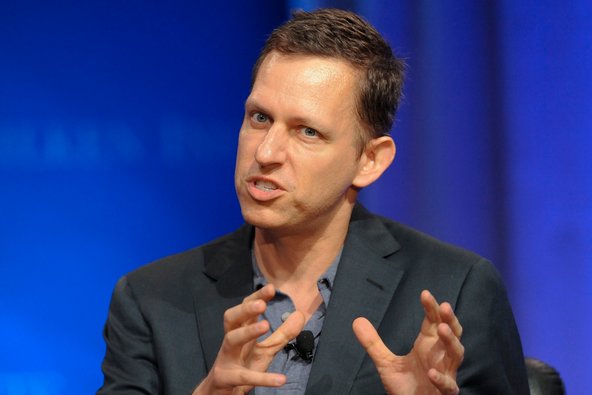Investor Peter Thiel — the entrepreneur and venture capitalist best known for PayPal and as an early Facebook investor — spoke glowingly about Bitcoin at the Thiel Foundation Under 20 Summit earlier this month.
He recalled having made comments back in 1999 that monetary sovereignty’s time is limited and encrypted money will revolutionize the entire world.
Thiel suggested Bitcoin is the first such currency with that potential.
These statements contradict other remarks in which Thiel reportedly gave Bitcoin only a one-in-five shot of long-term survival.
Nevertheless, his company led an investment in BitPay that was worth about $2 million.
At the summit, Thiel cleared up some of these apparent contradictions by suggesting that neither Bitcoin nor its inherent value were faulty, but the threat of government intervention looms large.
“As far as I can tell right now, it’s being used for speculation and illegal activity — illegal payments — and, therefore, it is possible that it will be scrutinized in an increasingly difficult way in the years ahead,” he said.
His former startup, PayPal, dealt with similar issues in 2000 when it tried to integrate e-gold, certificates backed by gold for anonymous transactions. However, e-gold’s primary use, he later claimed, was for laundering money and theft, and it was removed from the service after three months.
The US District of Columbia shut down e-gold eight years later for not being a licensed money transmitter. Its reserves were liquidated for about $90 million, and Bitcoin skeptics like to point to that story.
As for governments, he urged everyone to proceed with caution.
“The fact that it hasn’t been shut down would tell you something if you had an extremely competent government that quickly stopped illegal activity. Because we do not have such a government in this country, you cannot have any reassurance that it will not be shut down at some point in the future.”
Thiel also admits part of his motivation in creating PayPal was to allow for the free movement of money outside of the government’s reach.
The Thiel Foundation states its goals as promoting freedom, which it says is always under siege worldwide by authoritarian regimes and even elected governments.
The foundation supports scientific research, champions anyone who exposes human rights abuses and authoritarianism, and encourages the exploration of new idea where people “can be less reliant on government and where freedom can flourish.”
It also offers 20 fellowships every year worth $100,000 to people younger than 20 who drop out of college to pursue entrepreneurship.
